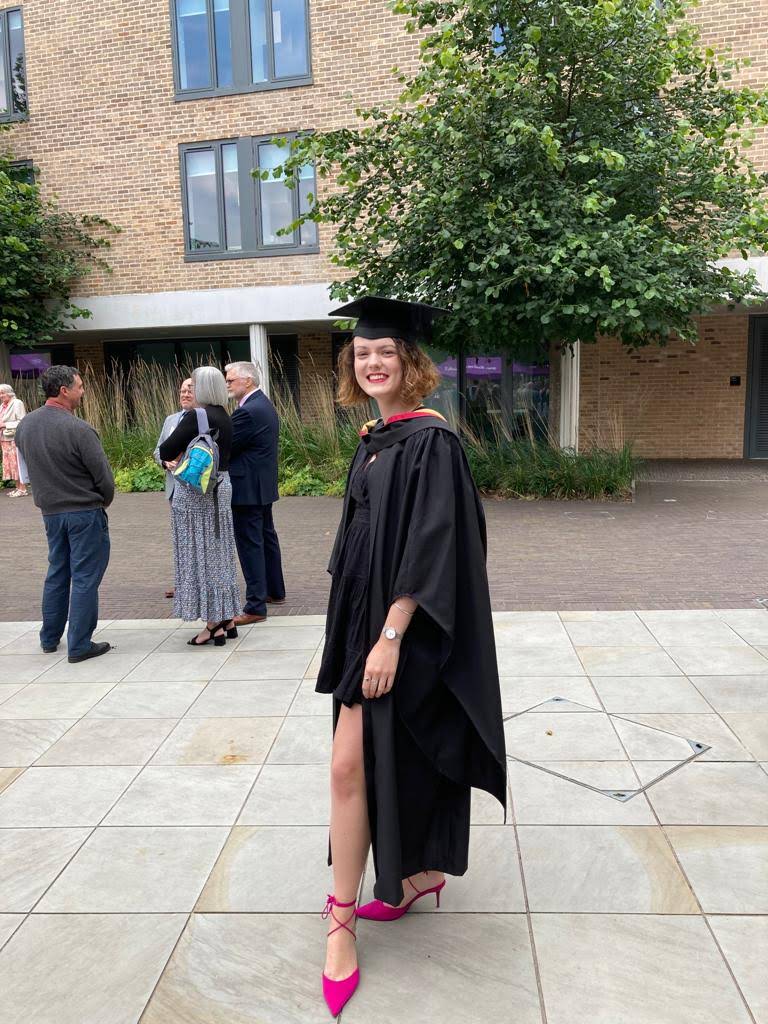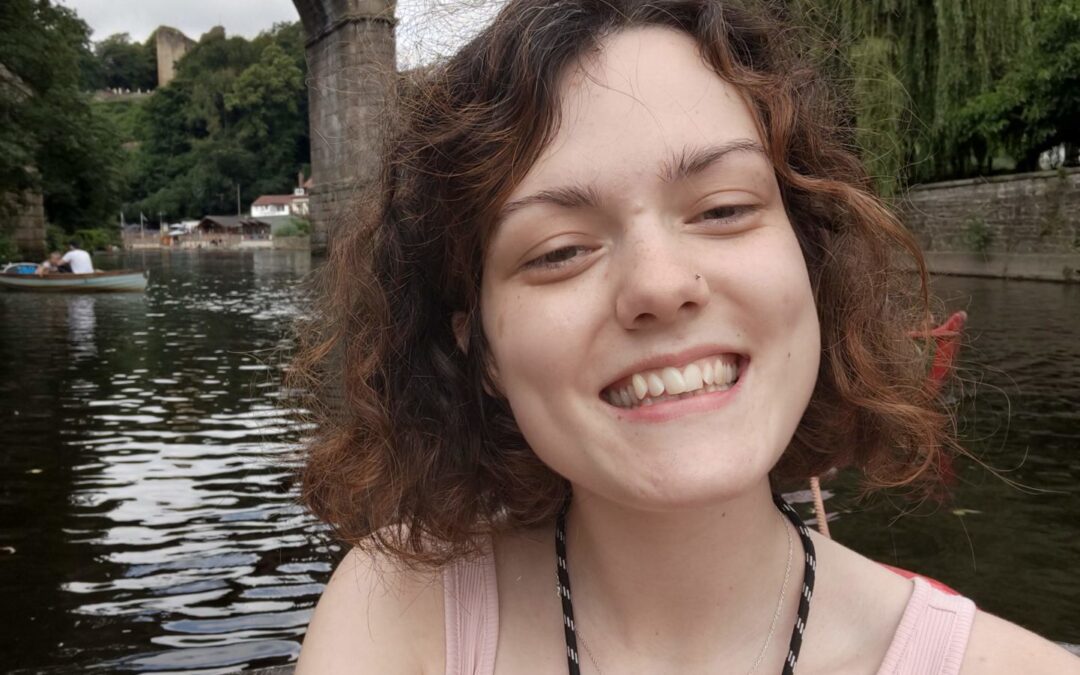Today’s blog is written by Harriet Willett, who has just begun her PhD researching AKU at the University of Liverpool:

Hi everyone! I’m Harriet. I am a graduate from Lancaster University with a Master’s in Natural
Sciences specialising in chemistry and statistics. I loved my 4 years at Lancaster and through my
degree became interested in the application of both subjects. Learning about how the skills and
techniques taught in lectures can be used in research to benefit, and in some cases even save
people’s lives, fascinated me. In particular, I have seen the impact of degenerative diseases within
my own family. These personal experiences really drew me to translational medical research with
true potential to improve patient care and ultimately quality of life for people suffering from such
conditions. I am really excited to apply my research skills to AKU and make a difference to the
patient’s lives as the ultra-rare diseases are often overlooked.
I have just started my PhD project on AKU working at the University of Liverpool with Professors Roy
Goodacre, Jim Gallagher and Lakshminarayan Ranganath. My project is funded by the AKU Society
which I think is an incredible network. I am excited to work as part of a diverse multidisciplinary
network including the University of Liverpool, AKU Society and Royal Liverpool University Hospital.

My project has two main aims. I will be working on developing an analysis tool which can be used to
track pigmentation and ochronosis within the body. This would help to provide more detailed
information about disease progression and the effects of nitisinone treatment in the clinic. My other
aim is to learn more about the composition and identity of the homogentisic acid-derived pigment.
This will increase the knowledge that we have about the disease. The more we know, the more
tailored the treatments can be.
My research will employ a range of advanced analysis techniques, especially Raman Spectroscopy
which utilises the interaction of light and molecules. This interaction provides detailed information
about the identity, structure and behaviour of the molecules being investigated. Whilst I have used
all of these techniques before, I have never used them for a biological application. I am hoping to
learn many new skills and ways of using the techniques and am excited to explore this new
application. This work will hopefully enable me to make a direct difference to the clinical
management of AKU and I can’t wait to get started and see what I will find.

